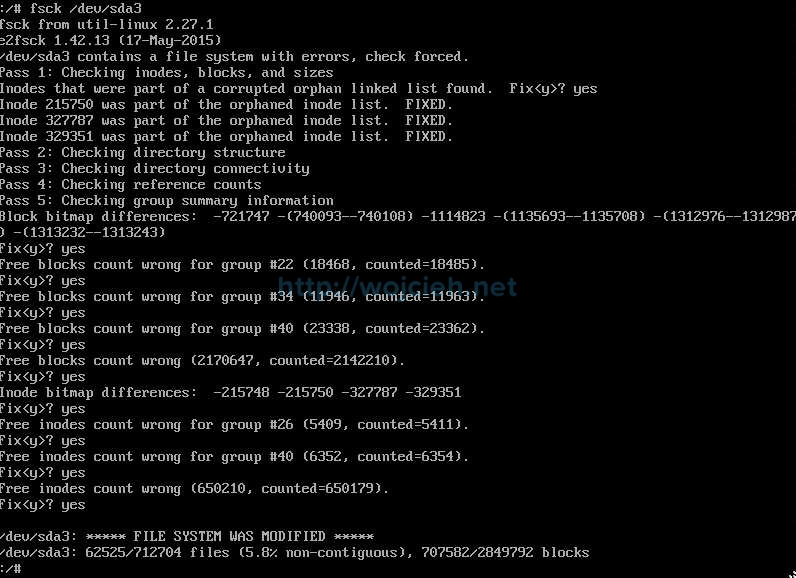
Failed to start File System Check on vCenter Server Appliance (vCSA)
Failed to start File System Check on. Ask Question Asked 5 years, 5 months ago. Modified 3 years, 3 months ago. Viewed 25k times. sudo fsck /dev/sda1 sudo fsck /dev/sda2 sudo fsck /dev/sda3 sudo fsck /dev/sda4 And I accepted everthing with y (yes) If you want to accept all automatically you can use ihmo the -y-flag:
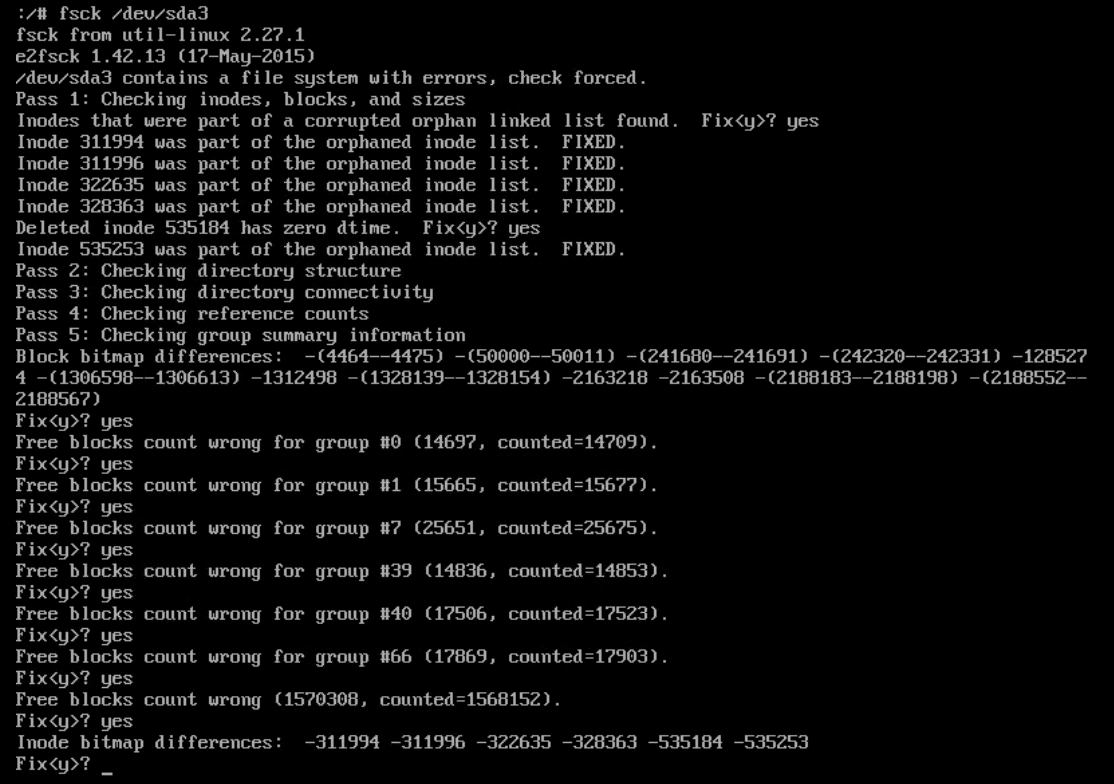
vCenter doesn’t start up Failed to start File System Check on /dev/dis.. vSAM.Pro
That's what's supposed to happen. There are two colloquial uses of the term "disk" or "drive" in play here: the first one refers to a physical device such as a usb stick. The second refers to a filesystem partition, of which there may be several on one physical device.. Device nodes like /dev/sda refer to the first sense (physical devices); device nodes like /dev/sda1 refer to the second.

vCenter appliance failed to start File system JPerformer_blog_site
1. I have a dedicated server with Hetzner running Ubuntu 22.04 (Kernel 5.15.0-27). They've added a new disk to my server, and since then I haven't been able to boot it. Using the rescue system and checking the logs, I found out it's possibly failing because it's timing out trying to find the boot partition: Jul 10 18:39:23 beaver systemd[1.

Vmware VCSA 6.5 or 6.7 fails to start with error Failed to start file system check on /dev/disk
[FAILED] Failed to start File System Check on /dev/disk/by-uuid… [DEPEND] Dependency failed for /home [DEPEND] Dependency failed for Local File Systems. You are in emergency mode… I dont know what whent there wrong, and i also dont have a clue how to fix this without destroying the data in my home folder
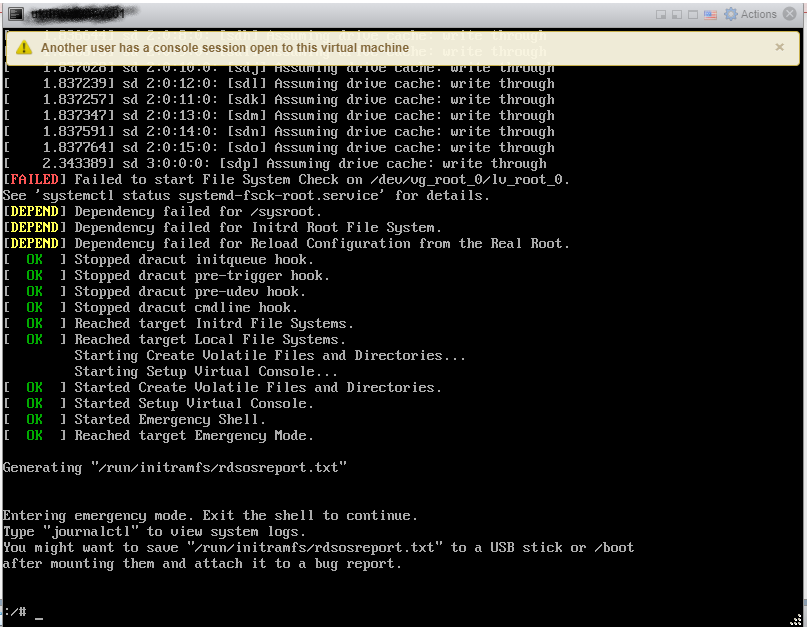
Failed to Start File System Check Vcenter 7 Jordansphere
pass 2: entry '
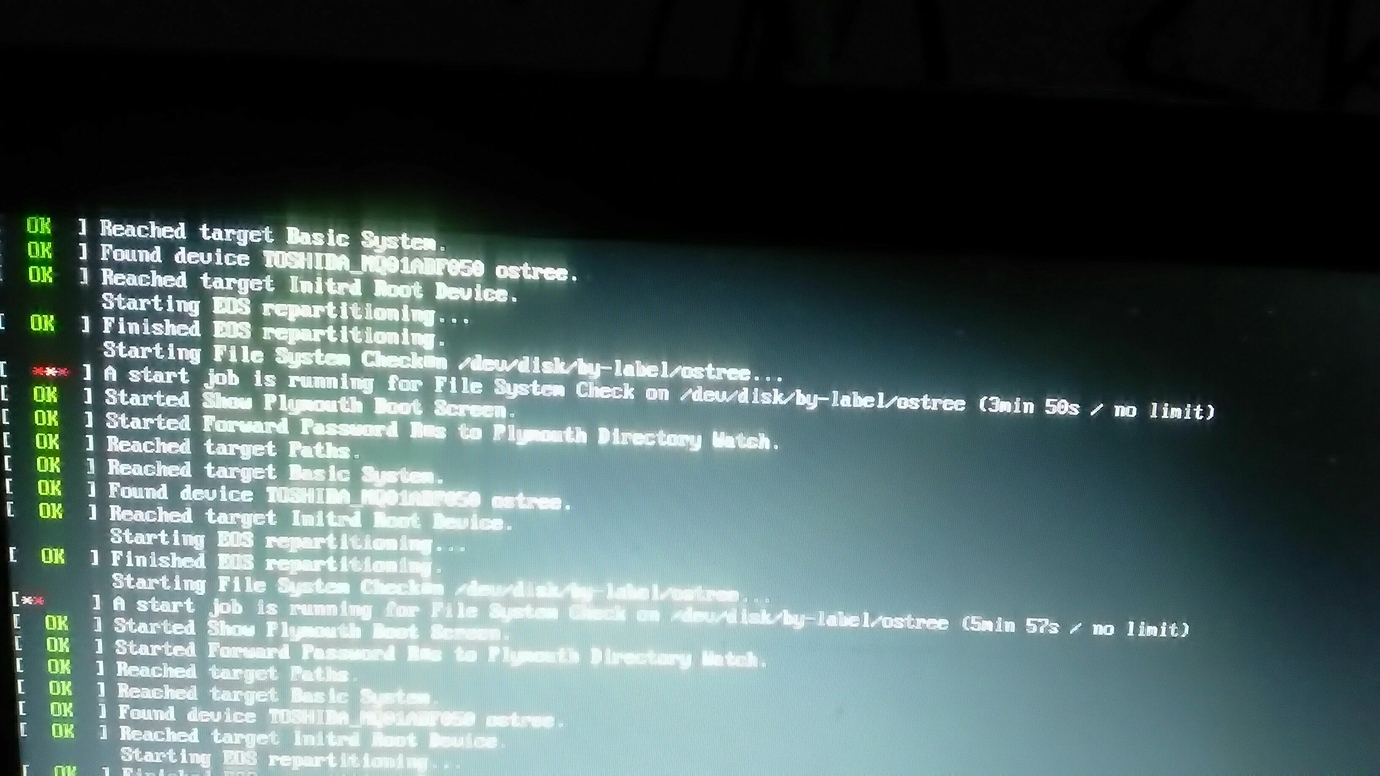
A start job is running for file system check on dev/disk/by label/ostree help Endless Community
Reboot the virtual appliance, and immediately after the OS starts, press e to open the GNU GRUB Edit Menu.; Locate the line that begins with the word linux.; Option 1 At the end of the line, add fsck.repair=yes then reboot the appliance.This will force the default filesystem check to auto-resolve any issues, and does not require emergency mode.

vCenter doesn’t start up Failed to start File System Check on /dev/dis.. vSAM.Pro
The Pi CAN boot directly from USB (at least Pi3). You should have root=PARTUUID=5c1ec57d-02 - the bootloader doesn't know what to do with a UUID. You are not mounting the partition (it is commented out in fstab) #PARTUUID=5c1ec57d-02 / PS The above assumes you have copied the root partition to SSD before booting.
Failed to start File System Check on /dev/disk*** [unsupported feature(s) FEATURE_C12
Tour Start here for a quick overview of the site. [DEPEND] Dependency failed for Local File Systems. [DEPEND] Dependency failed for File System Check on /dev/disk/by-uuid/4C01-B40. You are in emergency mode. After logging in, type "journalctl -xb" to view system logs, "systemctl reboot" to reboot, "systemctl default" or "exit" to boot into.

The errors are: [FAILED] Failed to start file system check on /dev/disk/by-uuid/a2fa1…. [DEPEND] Dependency failed for /home. [DEPEND] Dependency failed for Local File Systems. You are in emergency mode. What I've done is booted in manjaro with live usb and backed up my data.
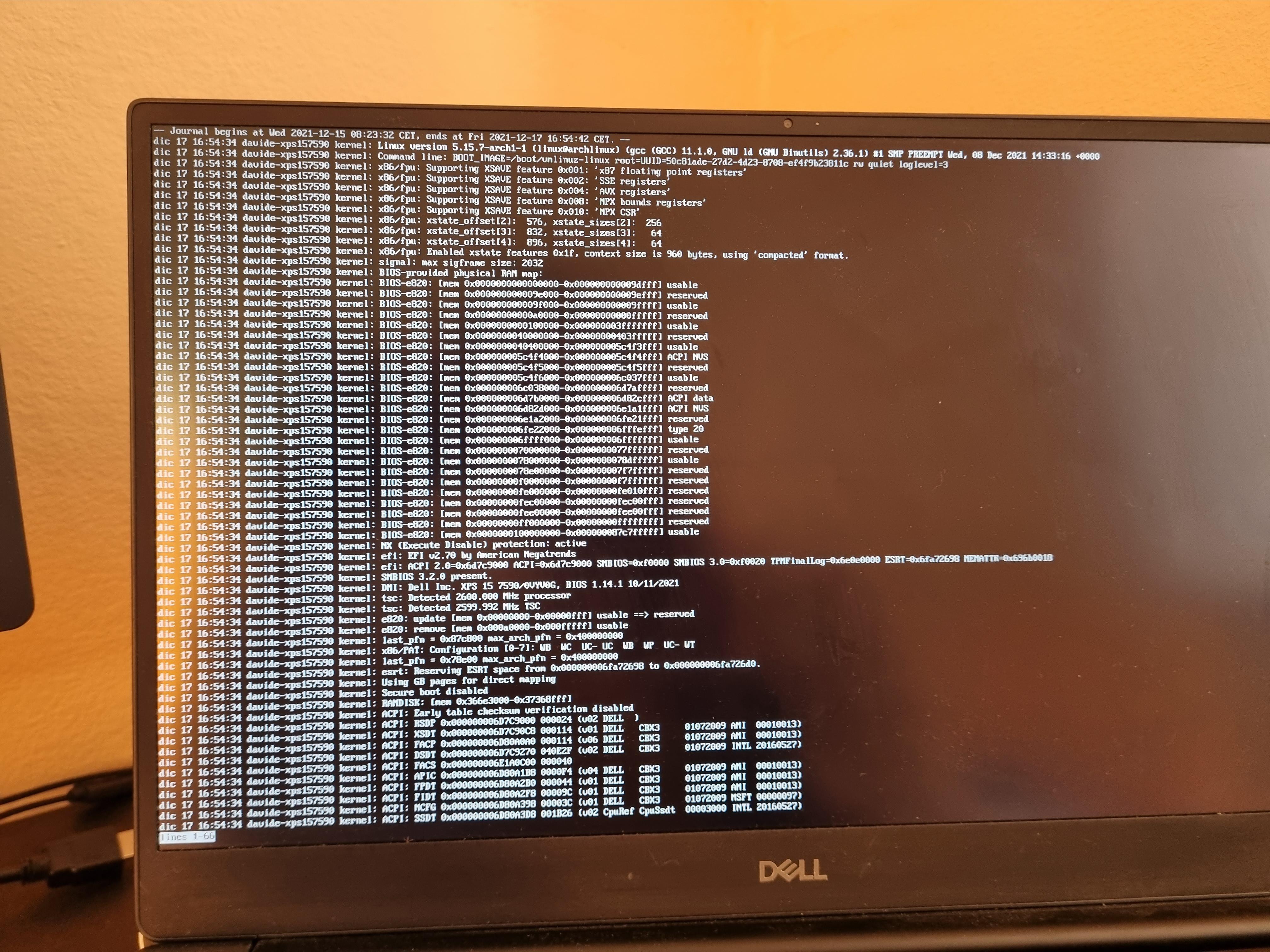
Arch Boot in emergency mode, failed to start file system check on /dev/disk/byuuid Scrolller
First boot using a rescue system (same version) and run a shell on your non-booting disk. Have a look at /etc/fstab and confirm the uuids there by issuing the blkid command for each device. Fix these entries as they're important. Next we fix grub with: grub-mkconfig. update-grub. Then run:
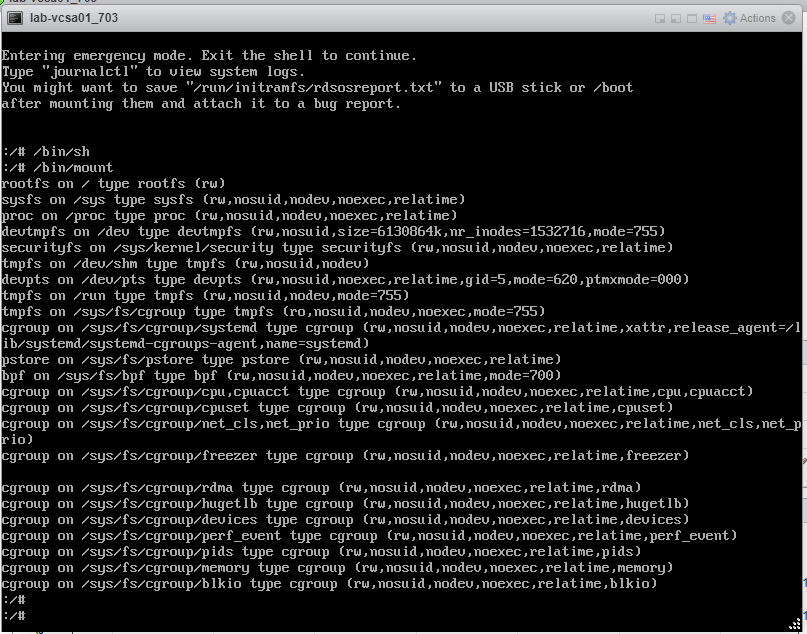
vCenter Failed to Start File System Check on Disk (VMware KB2149838)
Resolution. Boot into rescue mode. Run the following command to go to the last line. #journalctl -G. Run the fsck manually: #e2fsck -f /dev/sda2. Then answer yes to all suggested repairs. Reboot the server. Document Type.
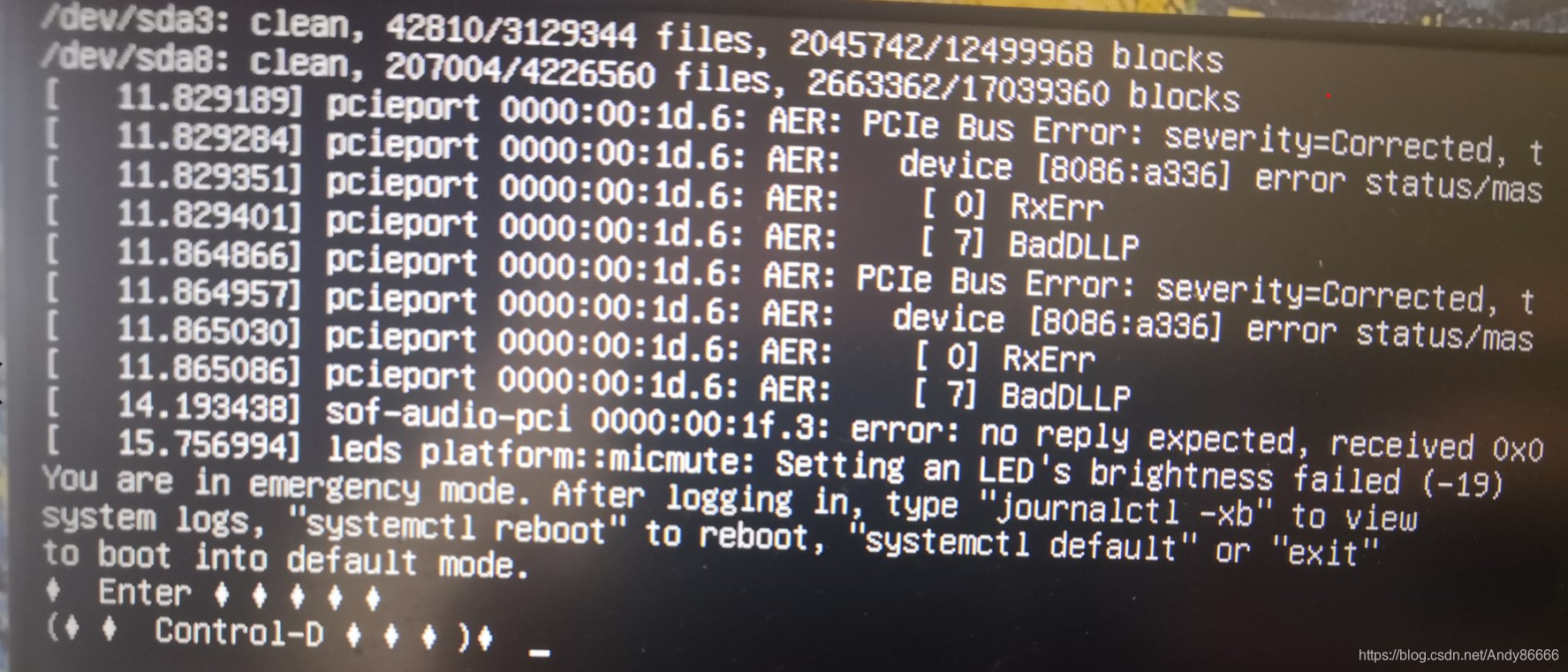
解决Ubuntu中you are in emergency mode(紧急模式)问题 源码巴士
Sorry for the late bump, I was checking some older replies. About filesystem checking on boot: What I do about twice a year is add fsck.mode=force to the kernel line in grub.

Fix BusyBox INTRAMFS error "/dev/sdbX contains files system with errors, check forced
Re: [Solved] Failed to start file system check on /dev/disk/by-uuid Thanks a lot, I had the same problem in my GPU server node, this blog helped me resolve it. Much thanks for the solution

You are in emergency mode Cannot open access to console 链滴
Output from running lsblk -e 7 -0 name,fstype,size,fused,label,UUID,mount point. Finally solved the issue: I booted with a live usb and ran $ sudo fsck /dev/sda5 (my Linux partition, you can get yours by running sudo blkid, it's the one with type ext4) and ran boot repair recommended fix and then rebooted.
Failed to start File System Check on /dev/disk*** [unsupported feature(s) FEATURE_C12
Good afternoon, Thank you all for your kind help in getting my system on track again. I have used Manjaro since 2020 on this PC. However three days ago during restart I got a message that system failed to system check on (probably) root device and went into emergency mode. I tried timeshift to restore previous image (but failed with same message). I tried reinstalling the Manjaro but still get.
"Failed to start file system check on /dev/disk..." error on Photon OS based virtual appliances
This message indicates a problem in /etc/fstab.Run the lsblk -f command to view a list of your devices and their UUIDs. Then make sure the entries in /etc/fstab are using the correct UUIDs.. When I encountered this problem, my /etc/fstab had an entry for a swap partition, but lsblk -f revealed that I had no swap partition! Removing that entry from /etc/fstab solved the problem.
- Russell Funeral Home Obituaries Stephenville Nl
- Blue Jays Mother S Day Hats
- Chalet A Vendre Lac Memphrémagog Bord De L Eau
- Levi 70s High Slim Straight
- Bracelet En Pierre Semi Precieuse
- Amenagement Autour D Une Piscine Creusée
- Meubles Rd Galerie De La Capitale
- How To Add Spouse To House Title In Bc
- Marc Anthony Coconut And Shea Shampoo
- Houses For Sale With Shop